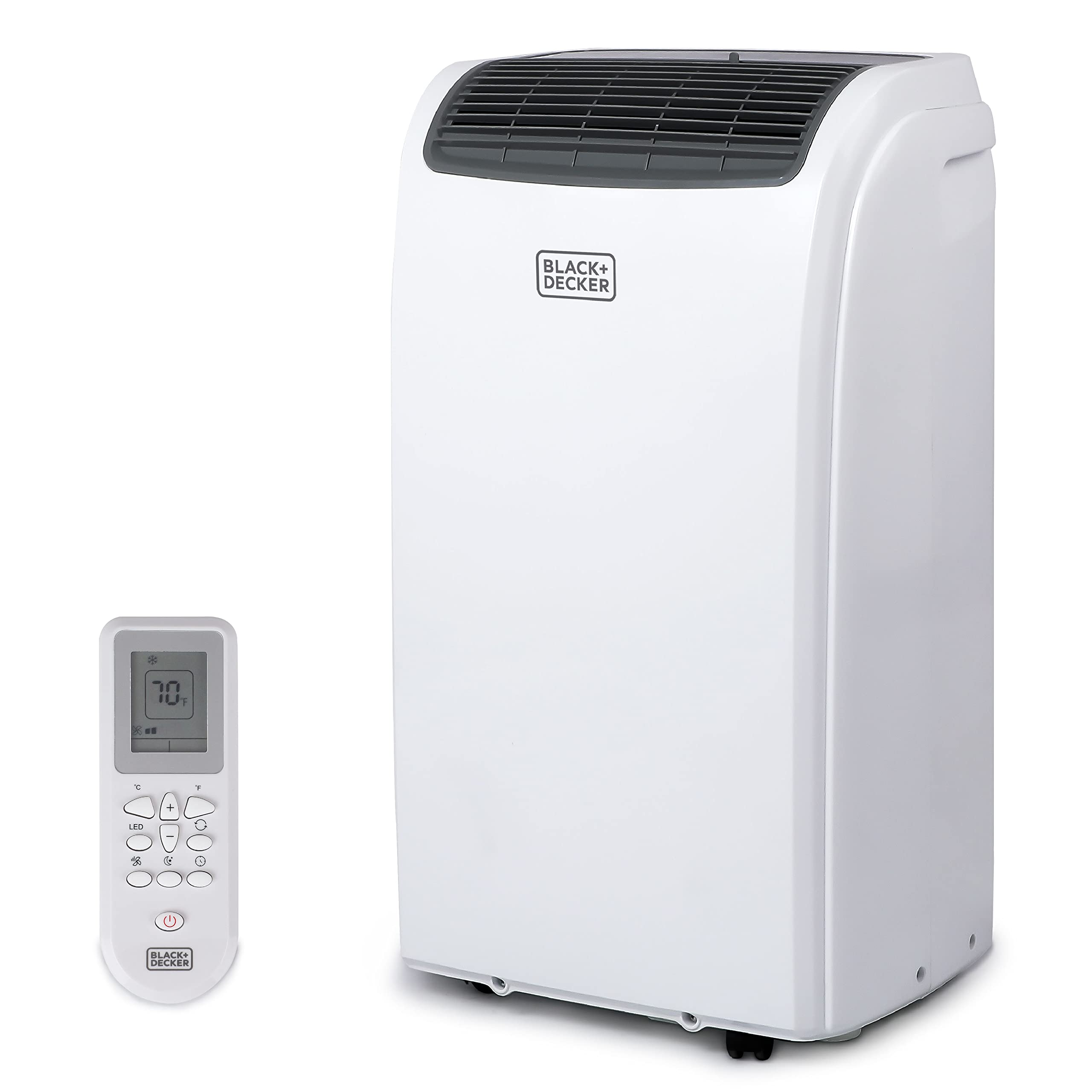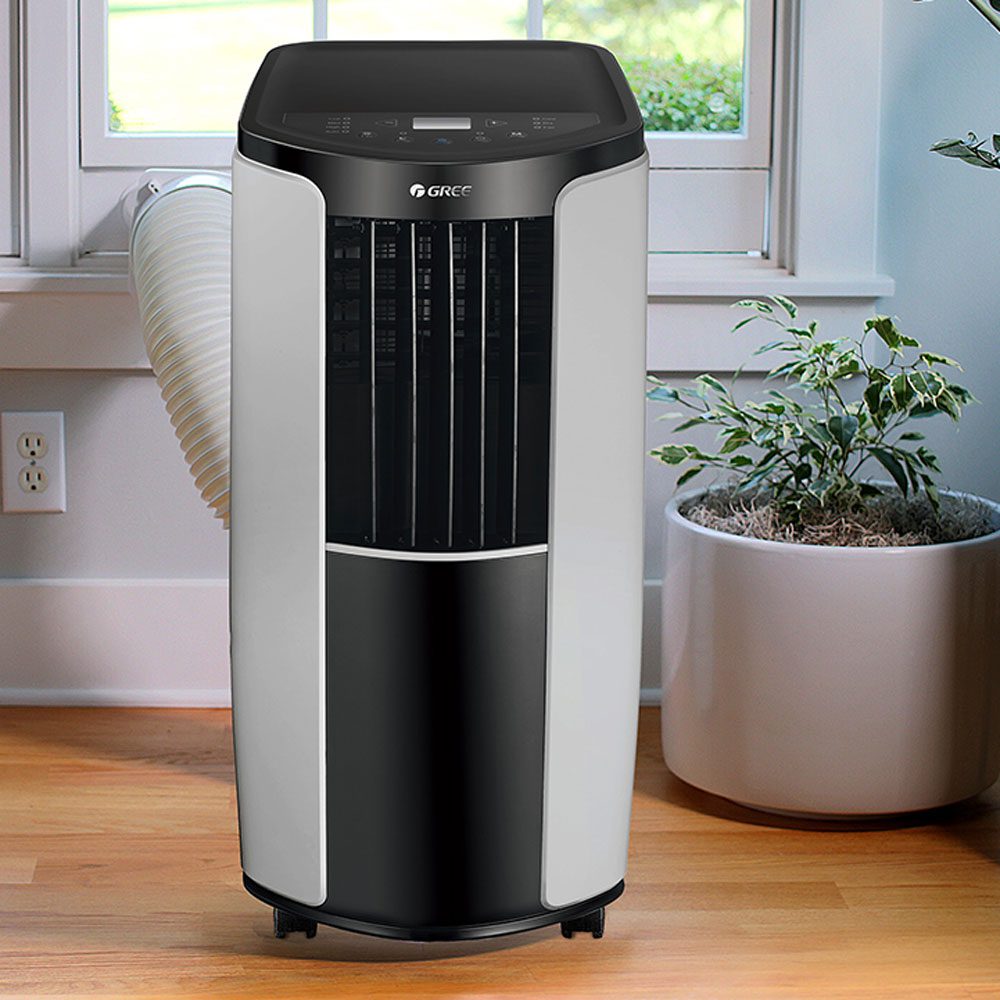Indoor air conditioners are effective cooling devices used to regulate and maintain a comfortable temperature within enclosed spaces. These appliances improve air quality, remove moisture, and provide cooling relief during hot weather, enhancing indoor comfort and productivity.
Understanding The Impact Of Poor Indoor Air Quality
Poor indoor air quality can have a significant impact on our health and well-being. Understanding the effects of inadequate ventilation and air circulation is crucial when it comes to making informed decisions about indoor air conditioners.
| Common health issues caused by poor indoor air quality |
|---|
|
Exposure to poor indoor air quality can have a significant impact on both productivity and well-being. Unhealthy air can lead to allergies, respiratory problems, asthma, coughing, and irritation of the eyes, nose, and throat. These health issues can cause headaches, fatigue, and general discomfort, making it difficult to focus and perform daily tasks efficiently.
Prolonged exposure to poor indoor air quality can also have potential long-term consequences. Chronic respiratory conditions may worsen, and individuals may develop more serious health problems over time. To maintain a healthy indoor environment, it is important to address and mitigate the factors contributing to poor air quality, such as inadequate ventilation, indoor pollutants, and improper HVAC system maintenance. Regular air quality monitoring and keeping air conditioners clean are essential strategies to ensure a comfortable and healthy living or working space.
Factors Affecting Indoor Air Quality
Indoor air quality is influenced by several factors. One of the primary sources of indoor air pollutants is the presence of chemicals from different sources like cleaning products, paints, and solvents. These chemicals can release harmful volatile organic compounds (VOCs) into the air. Additionally, inadequate ventilation systems can lead to a buildup of pollutants, especially in enclosed spaces.
Another factor that affects indoor air quality is the impact of building materials and furnishings. Many building materials, such as certain types of flooring or furniture, can release chemicals into the air over time. These chemicals can have negative health effects, especially for individuals with respiratory conditions or sensitivities.
To improve indoor air quality, it is important to address these factors. Using eco-friendly cleaning products, choosing low-VOC paints, and opting for sustainable building materials can all help minimize the release of pollutants. Additionally, ensuring proper ventilation in the form of air purifiers or opening windows regularly can help remove stale air and introduce fresh air.
In conclusion, by being mindful of the sources of indoor air pollutants and taking steps to mitigate them, we can create healthier and cleaner indoor environments.
The Role Of Indoor Air Conditioners In Improving Air Quality
The Role of Indoor Air Conditioners in Improving Air Quality
How indoor air conditioners filter and clean the air
Indoor air conditioners play a critical role in improving the indoor air quality of our living spaces. These appliances are designed to filter and clean the air, providing a fresher and healthier environment for occupants. Air conditioners typically have filters that capture dust, pollen, pet dander, and other airborne particles. This filtration process helps to remove allergens and irritants from the air, reducing the risk of respiratory problems and allergies. Additionally, some advanced air conditioners use additional technologies such as UV lights and ionizers to kill bacteria and eliminate odors. By effectively removing pollutants from the air, air conditioners contribute to a cleaner and safer indoor environment.
Benefits of using air conditioners for air purification
Using air conditioners for air purification offers several benefits. Firstly, it significantly reduces the concentration of pollutants in the air, which can improve respiratory health and reduce allergy symptoms. Air conditioners also help to control humidity levels, preventing the growth of mold and mildew. This is especially important in areas with high humidity. In addition, a well-maintained air conditioner can improve overall comfort by providing a cool and refreshing indoor climate. Lastly, modern air conditioners are designed to be energy efficient, which not only helps save on electricity bills but also contributes to a greener environment by reducing energy consumption.
Choosing the right air conditioner for improved indoor air quality
When selecting an air conditioner for improved indoor air quality, there are a few factors to consider. Firstly, choose an air conditioner with a good quality filter that can effectively capture allergens and other airborne particles. Look for filters with a high MERV rating, as this indicates better filtration capabilities. Additionally, consider an air conditioner with additional air purification technologies such as UV lights or ionizers, if desired. It’s also important to choose the right size air conditioner for the space to ensure efficient and effective cooling and purification. Lastly, regular maintenance and filter replacement are crucial to ensure optimum performance and air quality.
Energy Efficiency Ratings And Their Importance
Energy efficiency ratings play a crucial role in determining the performance and cost-effectiveness of indoor air conditioners. These ratings, such as the Energy Efficiency Ratio (EER), Seasonal Energy Efficiency Ratio (SEER), and Heating Seasonal Performance Factor (HSPF), provide valuable insights into an AC unit’s energy efficiency.
Understanding these ratings is essential, as they directly impact electricity consumption and costs. Higher ratings indicate greater energy efficiency, which translates into lower energy usage and reduced utility bills. By choosing air conditioners with high energy efficiency, homeowners can enjoy more comfortable indoor environments while minimizing their carbon footprint.
There are numerous benefits to choosing energy-efficient air conditioners. Not only do they reduce energy consumption and costs, but they also promote sustainability and contribute to a greener environment. Additionally, energy-efficient AC units often come with advanced features like programmable thermostats and humidity controls, allowing users to customize their cooling experience while saving energy.
Financial Considerations When Purchasing An Air Conditioner
When purchasing indoor air conditioners, there are several financial considerations to keep in mind. One important factor is the cost of the air conditioner itself, which can vary depending on factors such as the size, brand, and features. Additionally, installation costs should be taken into account, as well as any potential maintenance and repair expenses.
Long-term savings are another important consideration. Energy-efficient air conditioners may have a higher upfront cost, but they can lead to lower monthly utility bills and savings over time. It’s also important to calculate the return on investment (ROI) of the air conditioner. This involves comparing the cost of the unit and installation to the potential energy savings over the lifespan of the air conditioner.
An important tool for calculating ROI is determining the payback period. This is the amount of time it takes for the energy savings to equal the initial cost of the air conditioner. By understanding these financial considerations, you can make an informed decision when purchasing an air conditioner that fits your budget and long-term goals.
Tips For Enhancing Energy Efficiency
Regular maintenance and cleaning of air conditioners is essential for enhancing energy efficiency. Keeping the filters clean can reduce energy consumption by allowing the air conditioner to work more efficiently. Additionally, regular inspection of the unit’s coils and fins, and removing any dirt or debris, can greatly improve its performance.
Utilizing programmable thermostats is another great way to optimize energy usage. With programmable thermostats, you can set the temperature to automatically adjust based on when you are at home or away. This helps to prevent unnecessary cooling and saves energy.
Supplementary energy-saving measures can further enhance the energy efficiency of indoor air conditioners. Using ceiling fans alongside air conditioning can help distribute the cooled air more effectively, allowing you to raise the temperature setting on the air conditioner. This can lead to significant energy savings.
Another measure is insulating your home properly. By sealing any cracks or gaps in windows, doors, and walls, you can prevent the leakage of cool air and the entry of warm air, reducing the workload on the air conditioner and optimizing its energy efficiency.
Understanding Different Types Of Indoor Air Conditioners
Indoor air conditioners are essential for maintaining a comfortable indoor environment, especially during the hot summer months. There are various types of air conditioners available in the market, each with its own unique features and benefits.
Window Units
Window units are a popular choice for many homeowners. They are compact and designed to fit in a window opening, making them easy to install. These units are suitable for cooling small to medium-sized rooms and are cost-effective. They are also energy-efficient and provide quick cooling.
Portable Air Conditioners
Portable air conditioners are versatile and easy to move around. They do not require permanent installation and can be used in different rooms as needed. These units are suitable for cooling small spaces and are ideal for apartments or rental homes where permanent modifications are not allowed.
Central Air Conditioning Systems
Central air conditioning systems are more expensive and require professional installation. They are designed to cool the entire house and provide even cooling throughout. These systems are energy-efficient and offer programmable features for optimum comfort. They also have the advantage of filtering and improving indoor air quality.
Factors To Consider Before Making A Purchase
Before purchasing an indoor air conditioner, there are several factors to consider. First and foremost is the size and cooling capacity requirements. It is essential to determine the size of the room and the specific cooling needs to ensure the air conditioner is capable of effectively cooling the space. Additionally, budget constraints and cost considerations play a crucial role. It is important to set a budget and compare the prices and features of different models to find the best value for money. Another aspect to consider is the noise levels and aesthetic preferences. Some people may prefer a quieter unit, especially for bedrooms or offices, while others may prioritize the appearance of the air conditioner to match the decor. By carefully considering these factors, you can make an informed decision and choose an indoor air conditioner that meets your needs and preferences.
Evaluating Additional Features And Technologies
Indoor air conditioners have evolved beyond their primary cooling function to offer additional features and technologies that enhance comfort and air quality. One such feature is smart home compatibility, which allows you to control the air conditioner using voice commands or through a mobile app. This feature enables seamless integration with other smart devices in your home.
Another important feature to consider is dehumidification capabilities. High humidity levels can make a room feel uncomfortable and promote the growth of mold and mildew. An air conditioner with dehumidification capabilities can remove excess moisture from the air, improving overall comfort and preventing the growth of allergens.
Air purification and allergen removal features are also worth evaluating. These features help to remove airborne particles, such as dust, pollen, and pet dander, creating a healthier indoor environment for those with allergies or respiratory conditions. Some air conditioners include filters with HEPA or UV-C technologies that can capture and neutralize harmful bacteria and viruses as well.

Credit: www.amazon.com
Frequently Asked Questions Of Indoor Air Conditioners
What Is An Indoor Air Conditioner?
An indoor air conditioner is a device that cools and dehumidifies the air inside a room or building. It helps maintain a comfortable temperature and improve air quality by removing excess moisture and filtering out pollutants.
How Does An Indoor Air Conditioner Work?
Indoor air conditioners work by pulling in warm air from the room, passing it over evaporator coils filled with a refrigerant, which absorbs the heat and moisture from the air. The cooled and dehumidified air is then blown back into the room, while the heat is released outside through another set of coils.
What Are The Benefits Of Using Indoor Air Conditioners?
Using indoor air conditioners provides numerous benefits, such as improved indoor air quality, reduced humidity levels, and increased comfort during hot weather. They also help to prevent the growth of mold and mildew, and can be energy-efficient when used properly.
How Do I Choose The Right Indoor Air Conditioner For My Space?
To choose the right indoor air conditioner, consider factors such as the size of the space, BTU (British Thermal Unit) capacity, energy efficiency rating, and additional features like programmable timers and remote control. It’s also important to consult a professional to determine the best option for your specific needs.
Conclusion
Indoor air conditioners offer a convenient and efficient solution for cooling and improving the indoor air quality of your space. With their compact size and easy installation, they are a practical choice for both residential and commercial settings. By providing consistent cooling and removing pollutants, these units create a comfortable and healthy environment for you and your loved ones.
So, consider investing in an indoor air conditioner to enjoy the benefits of a cool and purified indoor atmosphere.


